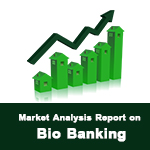
Yong Jian Geng
University of Texas, USA
Title: Regeneration and repair of post-infarct cardiovascular tissues with rejuvenated stem cells
Biography
Biography: Yong Jian Geng
Abstract
Stem cell-based therapy has been emerging as novel treatment of various pathological conditions that routine medications are not effective to. Cardiovascular tissue regeneration and repair with different types of stem cells from adult tissues have been confirmed in both animal studies and clinical trials. However, autologous stem cell therapy has confronted a major obscle that stem cells from sick, aged patients with cardiovascular diseases are often malfunctional and have lower potency of regeneration and repair. To overcome this obscle, several approaches have been developed in this laboratory, including genetic or epigenetic rejuvenation, preconditioning with anti-atherogenic drugs, and enhancing survival and growth with cytokines and growth factors. Recent study has shown that transplantation of mesenchymal cells rejuvenated by overexpression of telomerase and myocardin, promotes revascularization and tissue repair in a murine model of ischemia. In vitro experiments further demonstrated that co-delivery of telomerase and myocardin genes rejuvenate adult stem cells to hightened myogenic development. Delivery of the iPS reprograming nuclear factor Oct3/4 improves the stem cell potential for tissue regeneration and repair. In atherosclerosis-prone mice, epigenetic modification of Oct3/4 gene promotor activity impacts the pathogenesis of atherosclerosis. Recent studies by this and other groups have documented evidence that treatment with statin, a cholesterollowering drup, augments the therapeutic efficacy of adult stem stem cells. Animal study has shown that atorvastatin enhances the efficacy of mesenchymal stem cells treatment for swine myocardial infarction via activation of nitric oxide synthase. Simvastatin-enhanced expression of promyogenic nuclear factors and cardiomyogenesis of murine embryonic stem cells.

